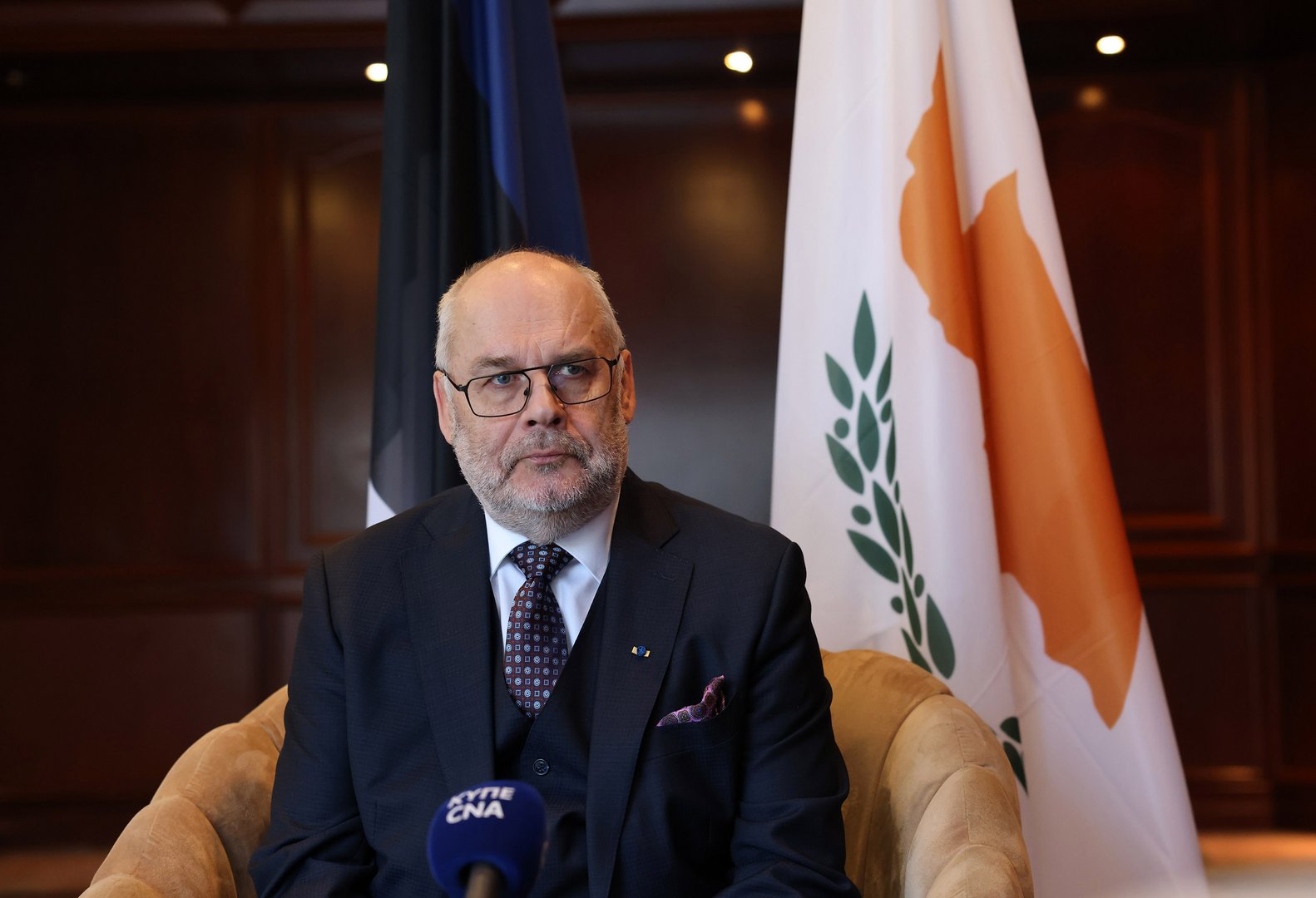During his official visit to Cyprus, Estonian President Alar Karis disclosed plans to engage in discussions concerning the Cyprus problem with Turkish President Recep Tayyip Erdogan later this year.
Karis confirmed the scheduled meeting during an interview with the Cyprus News Agency (CNA).
“It’s on our agenda,” he said. “I anticipate the matter will be discussed. It’s unavoidable. Given my presence here, the question is bound to arise,” Karis confirmed when asked about his intentions regarding the Cyprus problem during the forthcoming meeting.
He also reaffirmed Estonia’s stance favouring a bicommunal, bizonal federation as the most viable solution for Cyprus.
“Yes, this remains our country’s position. At present, I see no alternative solution,” he said.
Reflecting on his visit to the Green Line in Nicosia, Karis expressed mixed emotions.
“Visiting the Green Line evokes a wide range of sentiments. I’ve been there before, around ten or 12 years ago, during my tenure as a university rector. Witnessing the existence of ‘borders’ is disheartening, although it’s not an isolated case globally. It’s a sombre reality,” he said.
Addressing the bilateral relations between Cyprus and Estonia, Karis underscored their shared characteristics as maritime nations. Despite modest trade volumes, he highlighted ongoing efforts to enhance economic ties, stressing the importance of facilitating business interactions through delegations.
“Our visit involved discussions on future relations, particularly in trade. Although modest presently, we strive for improvement. Establishing business delegations fosters connections, despite our countries’ small size. Additionally, one of our maritime companies operates from Cyprus,” he explained.
Karis also identified potential strategies for further collaboration, particularly in e-governance, referencing a memorandum of understanding (MoU) signed between the two nations.
“Estonia’s expertise in digitalisation, exemplified by initiatives like e-prescriptions, offers valuable insights for cooperation,” he said.
Regarding geopolitical matters, Karis deferred to Cyprus on the issue of imposing sanctions, emphasising their complexity and limited efficacy. While acknowledging Russia’s efforts to circumvent sanctions, he underlined the necessity of pursuing diplomatic resolutions.
Expressing solidarity with Ukraine, he then addressed “the humanitarian imperative to address ongoing conflicts and support affected populations”.
Drawing parallels to Cyprus, he said it is paramount to find “inclusive solutions to unite divided communities”, welcoming the EU’s initiatives to promote cooperation.
On migration, Karis acknowledged Cyprus’s challenges as a frontline EU member state, drawing comparisons to Estonia’s experiences with refugees from Ukraine.
Highlighting the importance of addressing migration-related issues, he emphasised the need for comprehensive solutions to accommodate migrants.
“We don’t have migration like this in Estonia, but we’ve got refugees from Ukraine,” he said.
“And 4 per cent of our population are refugees from Ukraine. So, it is a different story, but still, you have to solve this problem, to find shelter, to find schools for education and so forth. So, we understand the situation in Cyprus,” Karis concluded.







Click here to change your cookie preferences